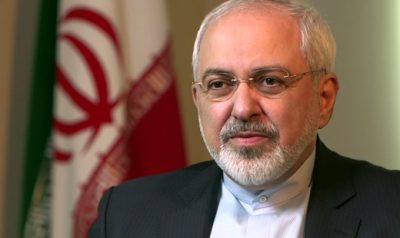US Blocks Iran’s Foreign Minister From Addressing UN Security Council

The U.S. government’s actions would constitute a clear violation of the terms of a 1947 agreement requiring Washington to allow foreign officials to enter the country to conduct U.N. business.
United States Trump administration denied Monday a visa to Iran’s Foreign Minister Javad Zarif to prevent him from addressing the United Nations Security Council on Jan. 9 on the assassination of Iran’s top military officer in Baghdad.
According to diplomatic sources, the U.S. government’s actions would constitute a clear violation of the terms of a 1947 agreement requiring Washington to allow foreign officials to enter the country to conduct U.N. business.
Zarif applied for a visa “a few weeks ago” to enter the U.S. to attend a Jan. 9 Security Council meeting on the importance of upholding the U.N. Charter. Thursday’s meeting would have been an opportunity for Tehran’s top diplomat to address the international community since the U.S. president ordered the Jan. 3 attack that killed Major General Qassem Soleimani.
However, a Trump administration official told U.N. Secretary-General Antonio Guterres that the U.S. would not allow Zarif to enter the country. A move that comes at a time of high tension between both countries, as Iran has sworn to avenge the murder of Soleimani.
While U.S. displays utter contempt for UN Charter & its catastrophic adventurism encourages extremism and terror, tomorrow we’ll host Tehran Dialogue Forum & discuss ways of achieving regional security, incl Hormuz Peace Endeavor #HOPE.
Follow #TDF2020 at https://t.co/yMzyH0RCT6
— Javad Zarif (@JZarif) January 6, 2020
On Sunday, Iran has summoned the Swiss diplomatic mission in Tehran after a series of tweets from U.S. President Donald Trump threatened to destroy the Islamic Republic’s cultural sites if American assets were targeted.
Trump wrote in a series of tweets that “if Iran strikes any Americans, or American assets, we have targeted 52 Iranian sites”, including Iranian culture, that he said would be hit hard.
The U.S. President would later brag about spending over US$2 Trillion on military defense, something he said should scare Iran from retaliating.
Meanwhile, in Iran millions took to the streets to mourn the killed general on Sunday and Monday as the Quds force raised the red flag in Iran over Jamkaran Mosque in Qom.
The red flag that is raised for the first time in Iran, symbolizes two aspects in the Shiite tradition, on the one hand, the blood unjustly shed and, on the other, a call to avenge the death of a murdered person.

